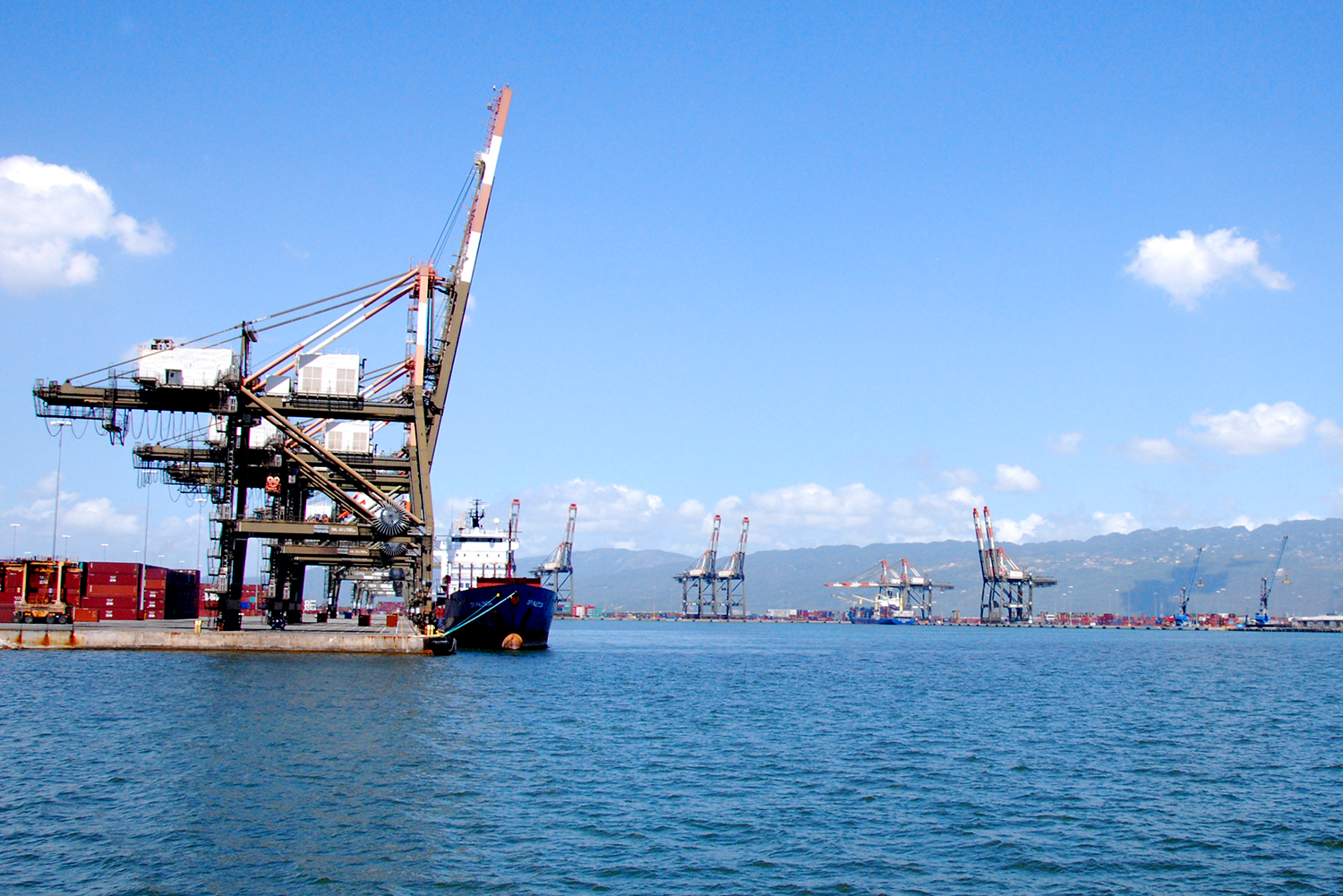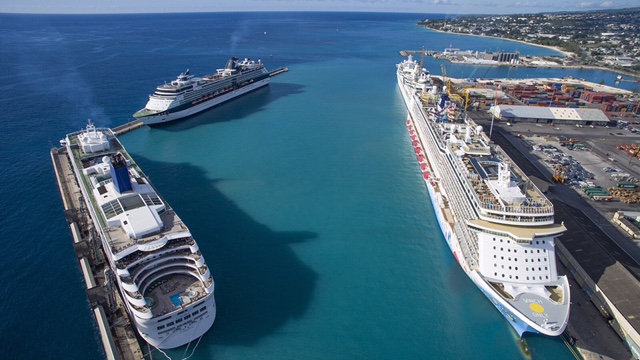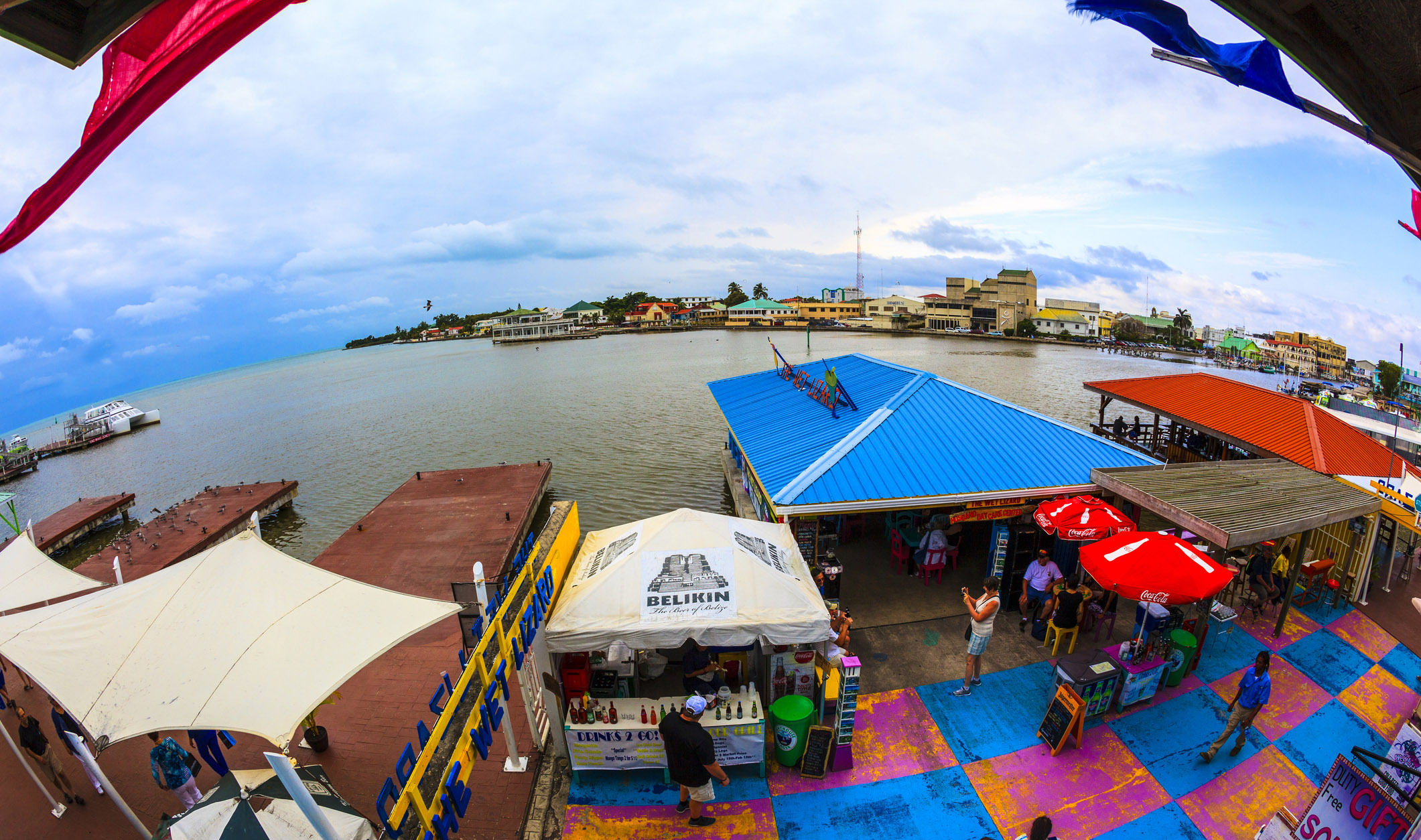THE LAW
Port Privatization: A Caribbean Perspective
By Lowel G. Morgan* and Francois A. McKnight
A review of objectives commonly associated with the privatization of seaport functions with specific references to Jamaica, Trinidad and Tobago, Barbados and Belize[2] and overview of how these ports are regulated, the institutional framework and the division of responsibilities between the public and private sectors. First published November 1, 2018
Initiatives in the Caribbean to establish global transhipment and logistics hubs come at a time when total public ownership and management of ports is no longer the model.
This has created a situation where port management services related to cargo handling, navigational aid systems and heavy infrastructure are now better delivered by concessionaries or private operators.
The critical importance of ports for the efficient working of Caribbean national economies cannot be overstated and many governments have reformulated the manner in which their ports are controlled, regulated, and managed, with the objective of increasing productive efficiency and financial viability.
PORT SERVICES
Ports function as modems which facilitate commerce and trade through the maritime sector. Seaport services previously focused primarily on sea transport but overtime, have metamorphosed into complex institutions with organizational structures regulated, in most cases, by a port authority.
A.J. Baird,[3] states the three fundamental functions of a port authority:
- a) The Regulatory function – such as the provision of port traffic management, enforcement of laws and regulations in force, licensing of port activities and protecting the interests of port users against the risk of monopoly formation.
- b) The Operational function – this implies the provision of services related to the transfer of goods and passengers between sea and land.
- c) The Landowner function – this involves the organization and development of the port’s real property; the implementation of the port policy and the development of strategies; the coordination of the port promotion policy; and, the development and maintenance of port infrastructure.[4]
More and more, port authorities have delegated the latter two functions while maintaining dominance of the regulator functions, which is understandable.
PORT PRIVATIZATION
Irrespective of the expansive visions and functions stated by port authorities, the common objective is to establish efficiency, sustainability and equity. Port privatization is the transfer of ownership of assets from the public to the private sector; or, the use of private capital to fund investment in port facilities, equipment and systems[5]. And its rationale is linked with the idea that the transfer of ownership from public to private will ultimately lead to improved efficiency and optimal financial performance.
REGULATORY FRAMEWORK
The framework establishing Caribbean ports encompasses initiatives of privatization. Notwithstanding these transformative changes, port authorities continue to maintain responsibility for traffic control (within the perimeter of the harbour) and other regulatory functions routinely performed by governmental authorities, including security, health and environmental issues.
There is a distinction to be made between a port authority as regulator and a maritime transport service operator (which is often a separate private entity).[6] The primary concern of having a more privatised maritime transport and operation system is related to the wider role of maritime transport in facilitating the globalisation trend enveloping Caribbean economic structures and the integration of shipping services to meet real-time delivery requirements of shippers.
Jamaica

In Jamaica for example, the Port Authority of Jamaica (PAJ) is a statutory corporation established by Section 4 of the Port Authority Act (1972)[7] and is the principal maritime agency responsible for the regulation and development of the nation’s port and shipping industry. The PAJ, as the regulator, is mandated to ensure that security systems, standards and procedure at Jamaica’s maritime and port facilities comply with statutes and international conventions.[8]
Prior to April 2015, the PAJ operated, maintained and had control over the Kingston Container Terminal (KCT) which grew to become one of the leading container terminals in the region, with consistently high performances in yard and berth productivity.
With increased pressures for faster turnaround times and profit maximisation, the PAJ gave up its stake in the KCT and concluded a 30-year Concession Agreement with CMA CGM. In this agreement, CMA-CGM, through its subsidiary Kingston Freeport Terminal Limited (KFTL), would develop, maintain and operate the terminal.[9]
Kingston Wharves Limited[10], a privately held full-service terminal operator is also located housed at the Kingston Harbour. And that company is also making major investments to expand its container and vehicle handling capabilities.
Trinidad and Tobago
The position in Trinidad and Tobago is quite similar. The Port Authority of Trinidad and Tobago (PATT)[11] regulates port administration and performs its functions and duties directly through its own officers, servants, and employees. PATT may also enter into contractual arrangements with other entities to undertake the activities for which it is responsible, whether independently of the authority or under its control (or partial control), and may give assistance to such entities, including financial assistance.[12]
Due to this, ports have somewhat of a quasi-public-private regime where port management and operation such as cargo handling services is delegated to the Point Lisas Industrial Port Development Corporation Limited (PLIPDECO), a private company, albeit publicly owned. The government therefore still maintains more control in contrast to what happens in Jamaica as PATT’s authorization is still required to load and discharge cargo and to supply port services within the country.
Barbados

Barbados also takes a liberal approach to port privatization and its port management model empowers the private sector to play a greater role in the construction, maintenance and operation of ports and harbour facilities. The legislation authorizing this is the Port St. Charles Development Act CAP 234 which permits The Port St. Charles Development Limited, a privately-owned company, to maintain works and facilities and entitled to utilise them for its sole use and benefit.[13]
Barbados’ other port, the Port of Bridgeport, is operated by Barbados Port Inc. by virtue of the Barbados Port Inc (Transfer to Management and Vesting of Assets) Act CAP 185B (2003) (“the Barbados Act”).
What is interesting about this Barbados Act is the fact that it expressly transfers the rights to set, collect and retain port dues and charges for the provision and use of port facilities and services. The Barbados Act goes on to provide that lands of the port are to be leased to the company and transfers the assets in relation to the operation of the port that were vested in the Barbados Port Authority as well as the liabilities incurred in relation thereto to be transferred to the company.[14]
But unlike the situation in Jamaica, this company is owned by the Government and formal governmental oversight is maintained over the port’s commercial activity. How this works is that every five years, the company is mandated to submit a port master plan for approval and annual reports and audited financial statements laid before Parliament.[15] There are however, some services that are provided by the private sector on behalf of the Barbados Port Inc such as depot services, maritime agency services, maritime freight forwarding service, maintenance and repair of vessels.[16]
Belize

The Belize Port Authority Act CAP 233[17] (1976, Revised 2000) (“the Belize Act”) established the Belize Port Authority,[18] to regulate and control navigation within the limits of ports and their approaches, maintaining improving and regulating the use of ports and services and facilities; and providing pilotage services, beacons and other navigational aids.
The Belize Act also makes provisions for private sector participation in the operation of ports, where a licence may be granted for the construction and operation of a private port on such terms, conditions and restrictions and payment of such fees as he/she considers appropriate.[19]
PUTTING IT ALL TOGETHER
It should therefore be no surprise that these countries, driven largely by standard industry growth and private sector development, have made strides towards port privatization. Although these developments are geared at increasing efficiency and profitability for Caribbean economies, they do create additional costs and benefits which may influence investor decisions, organisational competitiveness and financial feasibility.
In order to have privatization work for Caribbean economies, there are a number of key factors to be considered. Some of them are:
- Ownership of all land should preferably be retained by the port authority which would be a checks-and-balances mechanism for governments to maintain some form of interest in the management of their ports.
- Great care and consideration should be given to the terms of concessions and their future impact on the public and private returns on investments. Too often ports have found that they have leased the profit centres to others, leaving themselves with seriously depleted revenues. The PAJ/KFTL Concession Agreement for example has been met with controversy as the terms of that document are not public.[20]
- Such agreements should try as best as possible to include clauses terminating the agreement if an operator is taken over by an organization that could introduce forms of discrimination.
- Private operators tasked with the maintenance of both infrastructure and equipment should be guided by adequate standards.
CONCLUSION
The role of the private sector has expanded significantly in Caribbean economic sectors over recent decades. And many ports within the region have benefited from private sector intervention. In a practical sense, the extent of privatization in ports can vary significantly between countries because of the various methodologies employed to bring about private sector participation.
As the Caribbean moves further towards realization of a Single Market and Economy and as the demand for ports to become more competitive increases, privatization will increasingly be the model applied for achieving improved operational efficiencies and the reduction of costs. []


___________________________________
NOTES
[2] Countries selected based on their rankings on The Liner Shipping Connectivity Index which captures how well countries are connected to global shipping networks. World Bank Report (2016).
[3] Baird, A., 1995. UK Port Privatization. In Context, Proceedings of UK Port Privatization Conference, Scottish Transport Studies Group, 21 September, Edinburgh.
Baird, A., 1997. Port Privatization: An Analytical Framework. In Proceedings of International Association of Maritime Economist Conference, 22 – 24 September, City University, London.
[5] (UNCTAD, 1998); Similar definitions are given by (Baird, 1999; Bucholtz, 2006)
[6] Maritime Authority (Jamaica)
[7] The Harbours Act (1874) and the Harbours Rules (1971)
[8] S. 4 and 6 of PAJ Act- PAJ can regulate and operate facilities and exercise powers through authorized servants or agents.
[9] On July 1, 2016 KFTL assumed control of the terminal.
[10] Services include: warehousing and inventory management; product repackaging, labelling and assembly; warehouse rental arrangements; and picking-packing inventory control and distribution for local and international clients.
[11] S. 4 incorporates the PATT as a body corporate with similar functions to PAJ
[12] S. 9 PATT Act
[13] S. 3-5.
[14] S. 4-5.
[15] S. 7
[16] Barbados Port Authority (Tariff Book Dues and Charges) Regulations 1987 and Barbados Harbours (Amendment) Regulations 2002.
[17] S. 3 and 10
[18] BPA is statutorily responsible for the regulation of all ports and harbours. In that role, it is responsible for ensuring that port facilities in Belize are in compliance with the International Code for the Security of Ships and Port Facilities (‘the ISPS Code’), promulgated under the auspices of the International Maritime Organization (See paragraph 5 of Civil Appeal No. 13 of 2011 Belize Port Authority v Eurocaribe Shipping Services Limited (distributing as) Michael Colin Gallery Duty Free Shop.)
[19] S. 23
[20] KCT Concession Agreement Not in The Public Domain (Reported, Gleaner Newspaper July 7, 2017) < http://jamaica-gleaner.com/article/business/20170707/kct-concession-agreement-not-public-domain>





